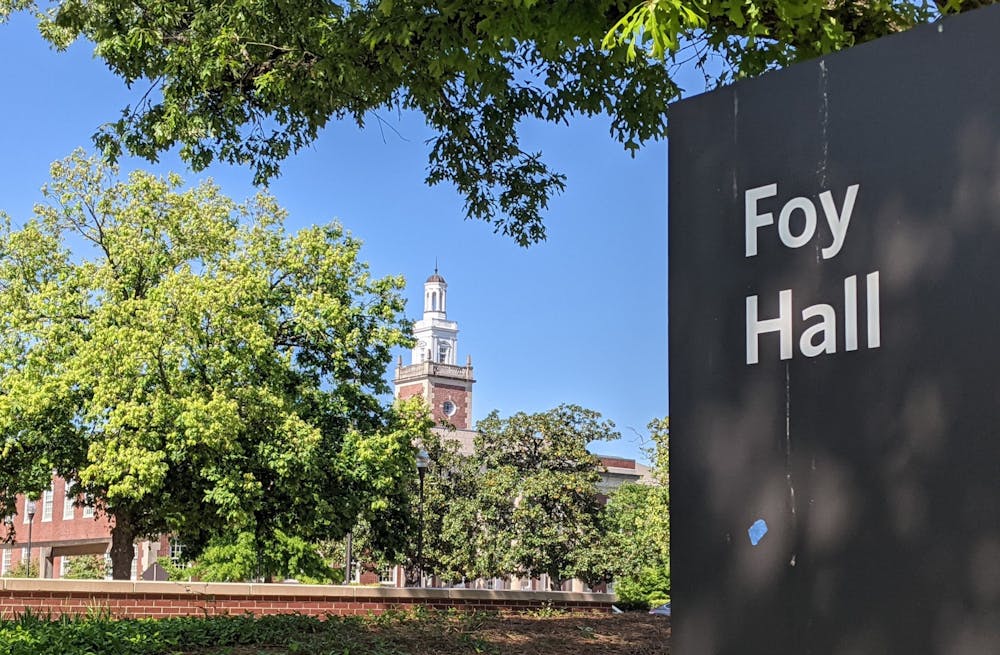With April being Sexual Assault Awareness Month, Auburn’s Title IX policies remind us that the University has many resources available to survivors of sexual assault while protecting against discrimination as well.
Katherine Weathers is the assistant director of the Affirmative Action/Equal Employment Opportunity Office and the senior deputy Title IX coordinator at the University and has been in this line of work since 2010. The AA/EEO Office handles all issues of discrimination and violations of Title IX.
“The law actually is more geographically limited,” Weathers said.
The legislation of Title IX does not protect against violations that occur outside of Auburn’s main campus or University activity, for example on study abroad programs.
“If you're not in the United States, you cannot violate Title IX," Weathers said. "But Auburn, and universities across the country, want to be able to hold their students and employees accountable for that behavior, so we have policies that go beyond just what the Title IX law says."
Auburn’s Title IX policy protects against discrimination, sexual harassment, sexual assault, intimate partner violence, sexual exploitation and stalking. It also provides subgroups, like sexual assault with or without penetration, to these categories to make reports more precise.
Weathers said the most common reports she sees from students are of sexual assault and relationship violence and stalking. For employees, they are sexual harassment and relationship violence. The least common reports she sees are quid pro quo sexual harassment, statutory rape and incest. At the University, she said there are, on average, 200 reports per year of some type of sexual misconduct.
“You can look at the experts that are out there online, national organizations and things like that, where they will say that 20% of college students report, meaning 80% don't,” Weathers said. “So, extrapolate that out from 200 reports.”
Reporting an incident involves looking up “Auburn Title IX” and filling out the form on the AA/EEO Office’s webpage. They can also directly email the Title IX Coordinator, Kelley Taylor, and Senior Deputy, Weathers.
“Reporting does not commit [the person reporting] to do anything,” Weathers said. “We just reach out.”
She said the reporter has no obligation to take any action, but that the office simply supplies them with resources such as Safe Harbor — a 24/7 hotline for sexual assault victims — or Student Counseling Services.
“It could be as simple as a no-contact directive,” she said.
A no-contact directive is a common response to reports. The office coordinates communication between the two parties involved and tells them to not communicate directly or indirectly and not have anybody communicate on their behalf. If it is broken the issue is then handed over to Student Conduct as a failure to comply.
A similar tool of the office called an informal agreement allows them to write up terms of separation that both parties agree to, such as one party will not go to events or places that the other frequents.
“So it's not a disciplinary action or punitive action against somebody who's accused of something,” Weathers said. “It’s solely an administrative action.”
The AA/EEO Office can also reach out to the student’s professors to make sure they can help them succeed under the circumstances.
If the victim wants to file a formal complaint, the office can investigate the case which is eventually a hearing takes place, right now over Zoom, where a hearing officer asks questions to the two parties and reviews the case to make a decision.
“Our standard of proof is only preponderance of evidence,” Weathers said.
Weathers said the office is not responsible for putting anyone in jail. At the worst, they would tell them to leave the University.
“I think that police have kind of a blunt instrument," Weathers said. "We have more precision instruments that we can use to help students as much as possible."
However, she said she still does encourage students from reporting to the police as well. The only case where the office would have to report an incident to the police is if the victim was a minor.
Weathers cautioned that people tend to talk about the first 6 to 8 weeks being a vulnerable time for freshmen to be sexually assaulted, because of the newfound freedom and introduction to alcohol, but any big celebration is also a vulnerable time. She also said that most cases involve a situation where a group of friends lose track of or let one friend leave during a night of partying.
“The fact of the matter is someone took advantage of that situation,” Weathers said. “So, it's wrong. There's also maybe just some behaviors that just aren't okay. It may not be sexual assault ... but we should also try to stop just bad behavior around sex.”
Allison Vandenberg, instructor of women’s and gender studies, often deals with topics of gender discrimination in her field of work.
“When we look back at the history of women's education in the United States, we see that there are a lot of women who get opportunities through athletic scholarships that would not have been available to them, if not for Title IX,” Vandenberg said.
Vandenberg also acknowledges the legislation protects students from trauma and harm. The best way to progress this protection is to report when a violation has occurred, she said.
“When we have reporting through Title IX, that tells us what is actually happening with students,” she said. “So we get more data from that, and, in turn, allows for greater allocation of resources in order to be able to not just create but expand upon a lot of the efforts that are already on campuses."
Vandenberg said to adequately address the problem of sexual assault on our campus victims need to report, so that sufficient support may be provided to future victims. The University needs to also let the community know that that support exists and will be there for them if they happen to need it, she said.
Do you like this story? The Plainsman doesn't accept money from tuition or student fees, and we don't charge a subscription fee. But you can donate to support The Plainsman.





